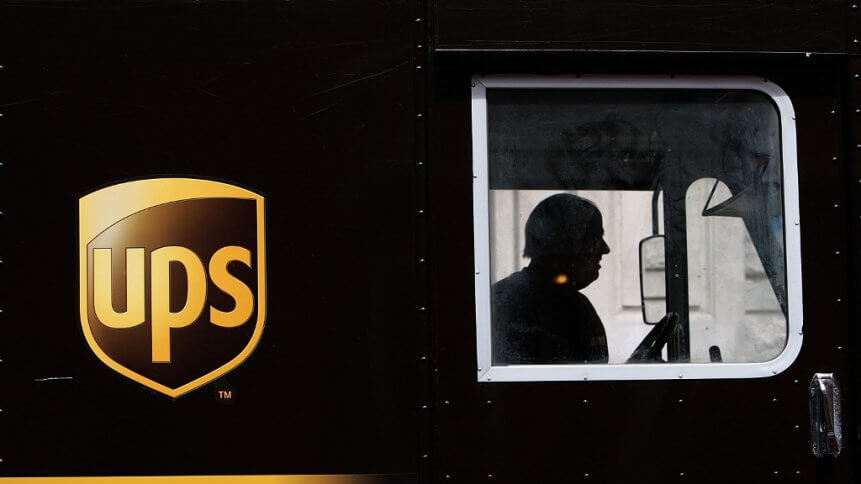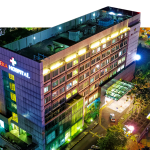How UPS is responding to demands for faster and safer deliveries

- UPS is actively enlisting emerging technologies to enhance deliveries
- The logistics giant received a license to operate one of the very first drone airlines
A recent survey by UPS revealed that while retail shoppers want control over the delivery process and easy returns, they would rather not pay for it.
The 2019 UPS Pulse of the Online Shopper study showed that 51 percent would choose slower but cheaper delivery costs. Consumers would take actions such as adding items to cart (36 percent), selecting slowest transit time (32 percent), and searching online for promo codes (32 percent) to avoid delivery fees.
In other words, the survey highlighted that choice of delivery speed has customer loyalty and bottom-line repercussions.
Another key takeaway is return policies are the deciding factor for returning consumers; up to 73 percent of shoppers indicated that returns experience affected their decision to continue shopping with a retailer.
With delayed refunds, return fees, and delays in receiving replacement goods considered to be bad return experiences, sellers are careful to ensure delivery options and services are up to expectations. This puts huge demands on logistics networks; players must offer seamless and lightning fast services in what’s become an incredibly competitive sector.
For the leaders among them, it’s new, future technologies that can help them stay ahead of the curve, and it’s ultimately why UPS is actively integrating autonomous, electric vehicles into its global network.
Autonomous and electric
TechHQ spoke to Bala Ganesh, Vice President of the UPS Advanced Technology Group, to delve into the logistics giant’s plans for autonomous deliveries to cut fuel costs, reduce emissions, and essentially, drive efficiency.
“UPS looks at all technologies as they emerge to determine quickly if they have potential uses in our global logistics network. Autonomous technologies are among these,” Ganesh said.
UPS’s testing of autonomous vehicles in its London hub with partner Gaussian are showing how effective this future transport solution can be. Gaussian’s ‘shifter’ vehicles are being put to use in the company’s advanced technology depot, where they’re being trialed in moving semi-trailers and containers. Novel battery-swap technology allows the vehicles to be operated day and night with a multitude of cameras, sensors, and sophisticated algorithms, all which “will continue to create efficiencies and improve safety in UPS operations,” Ganesh said.
Ganesh told TechHQ that his team contribute to “actively shape the design of new technologies to make it suitable for their operations,” by embracing a build-buy-partner approach. Gaussian’s vehicles are versatile and upgradable. “We bolt on additional capabilities,” Ganesh said, meaning the robots can be uniquely suited to the company’s precise use cases.
But its ambitions for autonomous vehicle technology go further. UPS is building an “integrated fleet of electric vehicles”. At the beginning of the year, UPS ordered 10,000 electric delivery trucks from UK-based Arrival which will be deployed in both European and North American markets.
The logistics giant strives to adapt next-gen technologies to suit its existing systems and operations, elevating the company’s efficiency to handle the heightening consumer demand for quicker and more convenient delivery and returns.
But while the company is leading in its sector by exploring emerging technologies as they develop, it’s not making that journey alone and not just doing it for its own gain.
UPS Ventures’s mission is “to build collaborative relationships with early-stage companies that provide capabilities and insights that accelerate the UPS transformation,” Ganesh said.
The logistics provider also collaborates with start-ups and invests in them to explore new technologies and tailor them to specific needs within the global UPS logistics network. Early this year, for example, UPS joined hands with Waymo to explore how autonomous ground vehicles can enhance customer service and network efficiency.
In parallel, UPS’s breakthrough in air mobility solutions will also play a critical role in the transportation and last-mile deliveries of the future. UPS earned one of the very first ‘license’ to operate a drone airport last October.
The company’s subsidiary UPS Flight Forward will deploy drones to deliver prescriptive medicines from CVS pharmacy to The Villages in Florida for a retirement community of more than 135,000 residents.
Ganesh elaborated that the move will “speed vital medicines to CVS customers” and is an ideal solution, taking into account COVID-19 stay at home restrictions. When it comes to bringing future transportation to the supply chain, UPS is setting a precedent.










